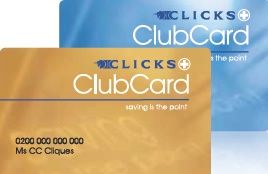
Soaring appeal of loyalty programmes in South Africa
South African consumers are finding ways to cope with the tough economic times, and using loyalty/reward programmes is one of them.
TrendER/infoQuest, a leading South African online research company, recently conducted a survey asking consumers which loyalty programmes they belong to, which they use most often and which are their favourite loyalty programmes.
This research was conducted in May 2023, and 300 consumers were interviewed.
The data showed that, on average, consumers belong to 8 loyalty programmes.
In terms of age groups, those in the 35–49 age category belong to the most loyalty programmes at 10, while the younger generation, those aged 18–24, belong to the least loyalty programmes at 7.
Females belong to a few more loyalty programmes than males: 9 compared with 7.
Membership of loyalty programmes

Clicks ClubCard occupies top position when it comes to membership, with Pick n Pay Smart Shopper and Checkers Xtra Savings neck and neck in second and third positions.
The top positions are occupied by the more general and grocery retailers.
Capitec Live Better is the only financial loyalty programme in the top 5, with just over half of respondents in the survey belonging to this programme.
Loyalty programmes used most and most value received
Programmes used and the most valued mirrored those with the highest membership.
These are also the programmes that are perceived to provide the most value.

Favourite loyalty programme
The Clicks loyalty programme is South Africans' favourite loyalty scheme, although only marginally so.
Capitec and Shoprite are in second place, with Pick n Pay and Checkers in very close fourth and fifth positions.
As expected, consumers choose their favourite programme based on the tangible benefits that they get – cash back and discounts are the drivers.

In the 25–49 year age category, Capitec’s loyalty programme is the most preferred.
“There are a number of factors influencing the popularity of loyalty programmes, now more so than ever,” says Mogorosi Mashile, MD of TrendER/infoQuest.
“Firstly, the competitive nature of the market has led to proliferation of choices for consumers, and loyalty programmes offer an incentive for customers to stay loyal to a particular brand. Secondly, the convenience and accessibility of loyalty programmes has improved significantly with digital platforms and mobile apps being available. Also, the economic uncertainty has heightened the importance of value and cost savings for consumers. Loyalty programmes enable customers to stretch their budgets by accessing discounts and rewards. During times of financial strain, these incentives become even more appealing.”
BUSINESS REPORT
News Category
- International retailers
- On the move
- Awards and achievements
- Legislation
- Wine and liquor
- Africa
- Going green
- Supplier news
- Research tools
- Retailer trading results
- Supply chain
- Innovation and technology
- Economic factors
- Crime and security
- Store Openings
- Marketing and Promotions
- Social Responsibility
- Brand Press Office
Related Articles

Checkers Sixty60 wipes floor with Pick n Pay As...

Top tips for consumers to combat escalating ele...

Clear winner in South African retail battle

Drinks survey reveals Rooibos as a top choice a...


